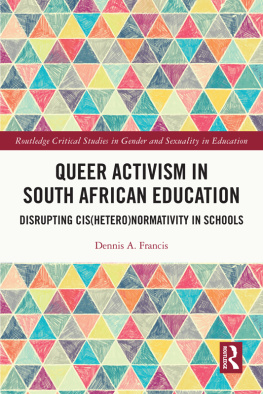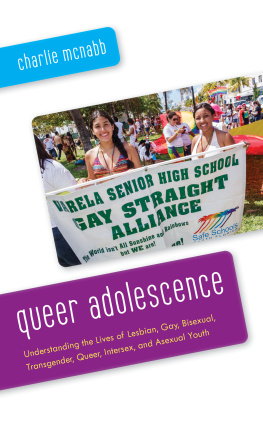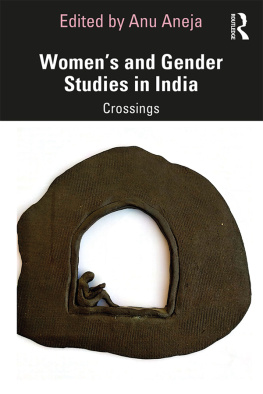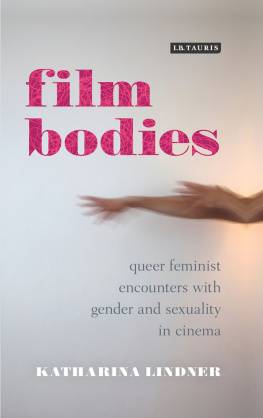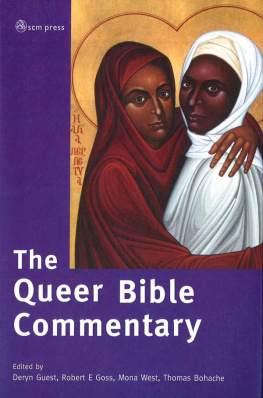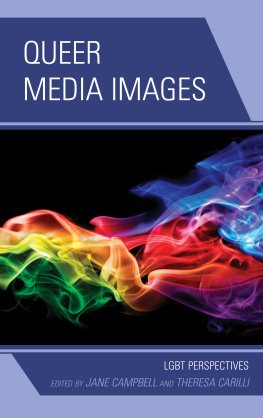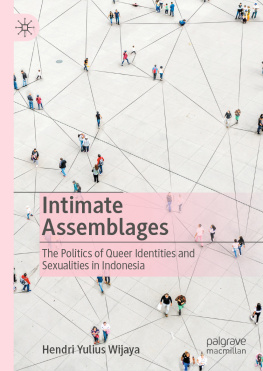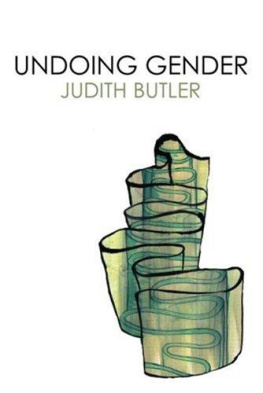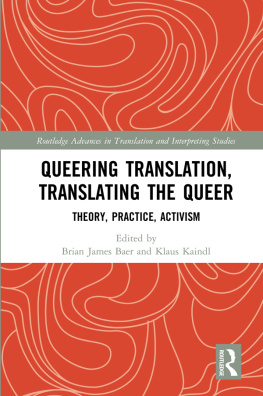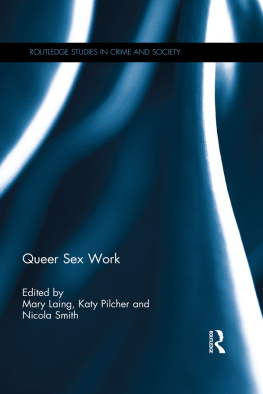Contents
Tables
Figure

Queer Activism in South African Education
Offering a vital, critical contribution to debates on gender, sexuality and schooling in South Africa, this book highlights how South African educational practices, discourses and structures normalize cisheteronormativity, along with how these are resisted within schools and through contemporary forms of activism.
Not only does it add fresh insights to the existing research literature on gender, sexualities and schooling, it also underscores the valuable contributions of queer and transgender social movements, which have made influential legislative, teaching, learning and support contributions to education. Drawing on ethnographic research with queer and transgender activists, teachers, school managers, parents and school attending youth, the book provides everyday real-life quotes and observations offering a deeply critical contribution to the debates on gender and sexualities, education and activism. Using spatial and affect theories, it troubles the assumptions that frame this field of research to make a novel contribution to the national and international literature and research.
The book provides research-based insights for thinking about and calls for informed action to challenging cisheteronormativity within and beyond schools.
Dennis A. Francis is a former Dean of Education and currently Professor of Sociology at Stellenbosch University, South Africa.
Routledge Critical Studies in Gender and Sexuality in Education
Series Editors Wayne Martino, EJ Renold, Goli Rezai-Rashti, Jessica Ringrose and Nelson Rodriguez
21Queer, Trans, and Intersectional Theory in Educational Practice
Student, Teacher, and Community Experiences
Cris Mayo and Mollie V. Blackburn
21Young British African and Caribbean Men Achieving Educational Success
Disrupting Deficit Discourses about Black Male Achievement
Cecile Wright, Uvanney Maylor, and Thomas Pickup
22The Experiences of Queer Students of Color at Historically White Institutions
Navigating Intersectional Identities on Campus
Antonio Duran
23Affect and the Making of the Schoolgirl
A New Materialist Perspective on Gender Inequity in Schools
Melissa Joy Wolfe
24Facilitating LGBTQIA+ Allyship through Multimodal Writing in the Elementary Classroom
Preparing Teachers to Challenge Heteronormativity
Judith M. Dunkerly, Julia Poplin, and Valerie Sledd Taylor
25LGBTQI+ Allies in Education, Advocacy, Activism, and Participatory Collaborative Research
Wendy M. Cumming-Potvin
26Queer Activism in South African Education
Disrupting Cis(hetero)normativity in Schools
Dennis A. Francis
First published 2023
by Routledge
605 Third Avenue, New York, NY 10158
and by Routledge
4 Park Square, Milton Park, Abingdon, Oxon, OX14 4RN
Routledge is an imprint of the Taylor & Francis Group, an informa business
2023 Dennis A. Francis
The right of Dennis A. Francis to be identified as author of this work has been asserted in accordance with sections 77 and 78 of the Copyright, Designs and Patents Act 1988.
All rights reserved. No part of this book may be reprinted or reproduced or utilised in any form or by any electronic, mechanical, or other means, now known or hereafter invented, including photocopying and recording, or in any information storage or retrieval system, without permission in writing from the publishers.
Trademark notice: Product or corporate names may be trademarks or registered trademarks, and are used only for identification and explanation without intent to infringe.
Library of Congress Cataloging-in-Publication Data
A catalog record for this title has been requested
ISBN: 978-1-032-03441-6 (hbk)
ISBN: 978-1-032-03442-3 (pbk)
ISBN: 978-1-003-18729-5 (ebk)
DOI: 10.4324/9781003187295
Typeset in Sabon
by KnowledgeWorks Global Ltd.
List of Illustrations
Tables
Figure
Preface
This book provides important insights into gender and sexual diversity in South African schools. One of its strengths is its empirical focus on school administrators, teachers and queer/trans youth in schools as well as queer/trans activists. Francis also devotes attention to key pockets of allyship and activism in schools which illuminate the productive ways in which a commitment to addressing the forces of homophobia and transphobia are being mobilized and enacted both inside and outside the education system. It is this turning of the spotlight on the affective dimensions of queer activism and social movements from outside schools in its capacity to combat heterosexism, homophobia, cisgenderism and transphobia in schools that marks the distinctive contribution of the book. In foregrounding the insights of trans and queer social activists and their outreach efforts to effect transformative change in schools, Francis provides a window onto context-specific [and] locally relevant ways to connect content pedagogical knowledge and support with contemporary organizing and social action. In this capacity, the book illuminates the productive potential of partnerships with LGBTQ community and NGO organizations to build capacity for supporting anti-oppressive education in schools that is committed to addressing gender and sexual diversity in schools.
Overall, the book reflects essentially a commitment to an epistemological embrace of queer and affect theory in its approach to centering cisheteronormativity as an analytic lens through which to make sense of homophobia and transphobia in South African schools and the broader post-apartheid context. In this sense, it provides some food for thought and further debate about the antinormative politics of queer theory in its capacity to satisfactorily address what Susan calls a decolonising focus on the space of transgender within queer African studies. In fact, B. Camminga argues that this critical project must contend with what trans studies has to offer in its concern over both queers erasure of the lived experience of transgender people and the conflation of transgender and queer, which together make certain transgender subjectivities that do not identify with the queer invisible.
Wayne Martino PhD
Professor of Equity and Social Justice Education
Faculty of Education
The University of Western Ontario, Canada
December 23, 2021
References
- (2017). Where's your Umbrella? Decolonialism and Transgender Studies in South Africa . Postamble ():154.
- . (2015). Normal life: Administrative Violence, Critical Trans Politics, and the Limits of Law. Durham, NC: Duke University Press.
- . (2006). (De)subjugated Knowledges: An Introduction to Transgender Studies . Pp. 117 in The transgender studies reader, edited by S. Stryker, and S. Whittle. New York, NY: Routledge.
Acknowledgments
Intellectual work is collective work, and over the last ten years, many colleagues and advisors have shared in partnering, supporting, and encouraging me through the manuscript. My appreciation goes to Grant Andrews, Jean Baxen, Christa Beyers, Anthony Brown, Ronel Carolissen, Paulette Dalphes, Rene DePalma, Thumi Diale, Kerryn Dixon, Monroe France, Mike Funk, Claire Kelly, Jonathan Jansen, Jon Kjaran, Jukka Lehtonen, Amanda Gouws, Hayley McEwan, Catriona Macleod, Pumla Gobodo-Madikizela, Lebo Moletsane, Dale Moodley, Thabo Msibi, Sally Murray, Kathy Obear, Rob Pattman, Ann Pellegrini, Finn Reygan, Neil Roos, Letitia Smuts, Frans Swanepoel, Jamie Washington, Lesley Wood, and Boni Wozelek. I am deeply grateful for all you have done for me and for your role in getting me to this current place.

